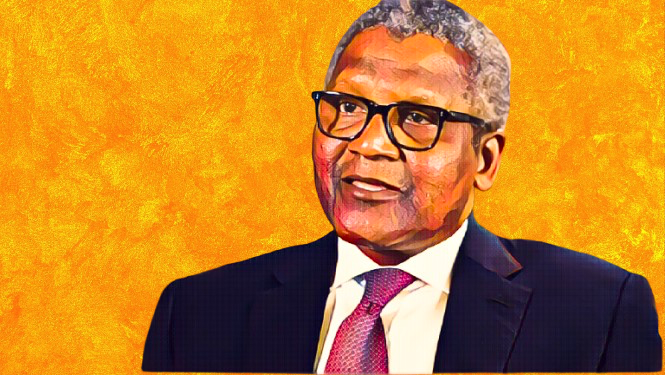KEY POINTS
-
Dangote says he built wealth without inheritance.
-
He gave away all inherited assets to charity.
-
Dangote Group now drives key industries across Africa.
Africa’s richest man, Aliko Dangote, insists he never depended on inherited wealth, building his vast empire entirely through personal effort.
In a Bloomberg interview uploaded in January 2020 and resurfacing this week, Dangote reflected on his family background and entrepreneurial journey.
He recalled that his late great-grandfather was considered West Africa’s richest man in the 1940s, with his grandfather also notably wealthy.
“The family name is Dantata, from my maternal side,” Dangote explained, adding his father was fairly rich through politics and business.
Despite that background, Dangote chose not to rely on his father’s wealth, stressing he deliberately rejected inherited financial advantages.
Dangote says he built wealth without inheritance
“One thing that I’m very, very proud of is that I did not inherit any money from my father. I built everything from scratch to where I am,” he said.
Dangote explained that whatever assets were passed down to him were later given away to charity. Instead of holding on to inherited possessions, he built his career by starting small.
He recalled working briefly with his uncle before moving to Lagos, where he began buying and selling cement in what he described as a “very low-key business.”
He said his early interest in cement was shaped by Nigeria’s housing deficit, estimated at around 17,000 units, and the wider infrastructure gap across Africa.
At the time, most of Nigeria’s cement was imported, a factor that drove his decision to invest heavily in local manufacturing.
Dangote group expands across African markets
According to Punch, that modest start eventually evolved into the Dangote Group, now a leading conglomerate across Africa.
The group operates more than 15 subsidiaries in at least 10 countries, including publicly listed companies like Dangote Cement Plc.
Beyond these core businesses, Dangote Group has expanded into oil refining, petrochemicals, fertilizer production, steel, logistics, transport, and real estate.
It has become a cornerstone in industries essential to Africa’s economic growth, development, and infrastructure across multiple strategic sectors.



